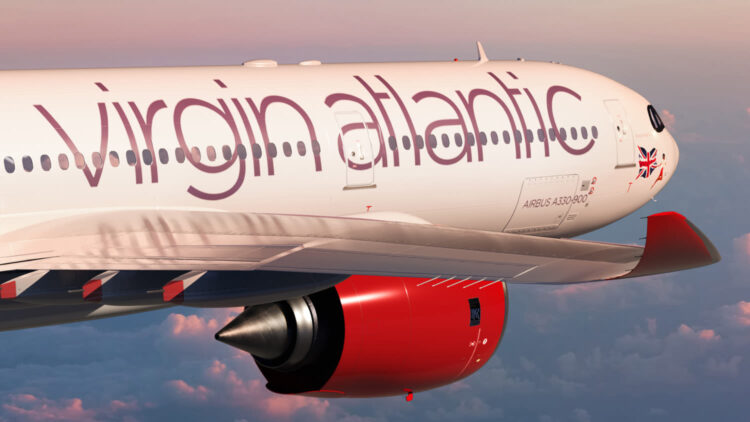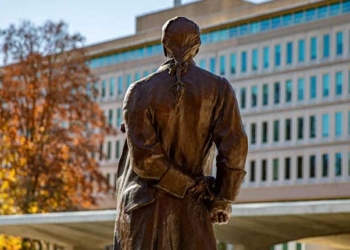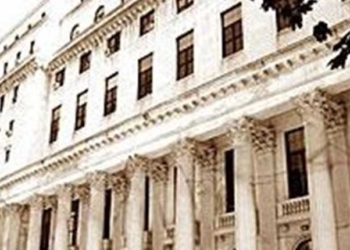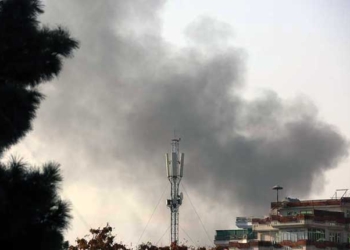New Delhi: Rolls-Royce ‘Flight 100’ — which is world’s first 100 per cent Sustainable Aviation Fuel (SAF) flight — took off from London Heathrow airport to New York, JFK on Tuesday.
The flight marked the culmination of a year of radical collaboration, to demonstrate the capability of SAF as a safe drop-in replacement for fossil derived jet fuel, compatible with modern engines, airframes and fuel infrastructure.
Flown on a Boeing 787, using Rolls-Royce Trent 1000 engines, the flight marks a world first on 100 per cent SAF by a commercial airline across the Atlantic.
The milestone flight was made possible by a Virgin Atlantic-led consortium, including Boeing, Rolls-Royce, Imperial College London, University of Sheffield, ICF and Rocky Mountain Institute, in partnership with Department for Transport
SAF has a significant role to play in the decarbonisation of long haul aviation, and pathway to Net Zero 2050.
While other technologies such as electric and hydrogen remain decades away, SAF can be used now. Today, SAF represents less than 0.1 per cent of global jet fuel volumes and fuel standards allow for just a 50 per cent SAF blend in commercial jet engines.
‘Flight 100’ will prove that the challenge of scaling up production is one of policy and investment, and industry and government must move quickly to create a thriving UK SAF industry.
As well as proving the capabilities of SAF, ‘Flight 100’ will assess how its use affects the flight’s non-carbon emissions with the support of consortium partners ICF, Rocky Mountain Institute (RMI), Imperial College London and University of Sheffield.
The research will improve scientific understanding of the effects of SAF on contrails and particulates and help to implement contrail forecasts in the flight planning process.
Data and research will be shared with industry, and Virgin Atlantic will continue its involvement with contrail work through RMI’s Climate Impact Task Force, which is part-funded by Virgin Unite.
The SAF used on ‘Flight 100’ is a unique dual blend; 88 per cent HEFA (Hydroprocessed Esters and Fatty Acids) supplied by AirBP and 12 per cent SAK (Synthetic Aromatic Kerosene) supplied by Virent, a subsidiary of Marathon Petroleum Corporation.
The HEFA is made from waste fats while the SAK is made from plant sugars, with the remainder of plant proteins, oil and fibres continuing into the food chain.
SAK is needed in 100 per cent SAF blends to give the fuel the required aromatics for engine function. To achieve Net Zero 2050, the innovation and investment needed across all available feedstocks and technologies must be harnessed to maximise SAF volumes as well as continuing the research and development needed to bring new zero emission aircraft to market.
Shai Weiss, Chief Executive Officer, Virgin Atlantic, said that the ‘Flight 100’ proves that SAF can be used as a safe, drop-in replacement for fossil-derived jet fuel and it’s the only viable solution for decarbonising long haul aviation.
Richard Branson, Founder, Virgin Atlantic, said that the world will always assume something can’t be done, until you do it. The spirit of innovation is getting out there and trying to prove that we can do things better for everyone’s benefit.
Mark Harper, Transport Secretary, Department for Transport, said that today’s 100 per cent SAF powered flight shows how we can decarbonise transport both now and in the future, cutting lifecycle emissions by 70 per cent and inspiring the next generation of solutions.
Simon Burr, Group Director of Engineering, Technology & Safety, Rolls-Royce plc, said that they are incredibly proud that our Trent 1000 engines are powering the first ever widebody flight using 100 per cent SVF across the Atlantic now.
Sheila Remes, Vice President of Environmental Sustainability, Boeing, said that in 2008 Virgin Atlantic and Boeing completed the first commercial SAF test flight on a 747 and today they have accomplished yet another significant milestone utilising a 787 Dreamliner.
(IANS)














